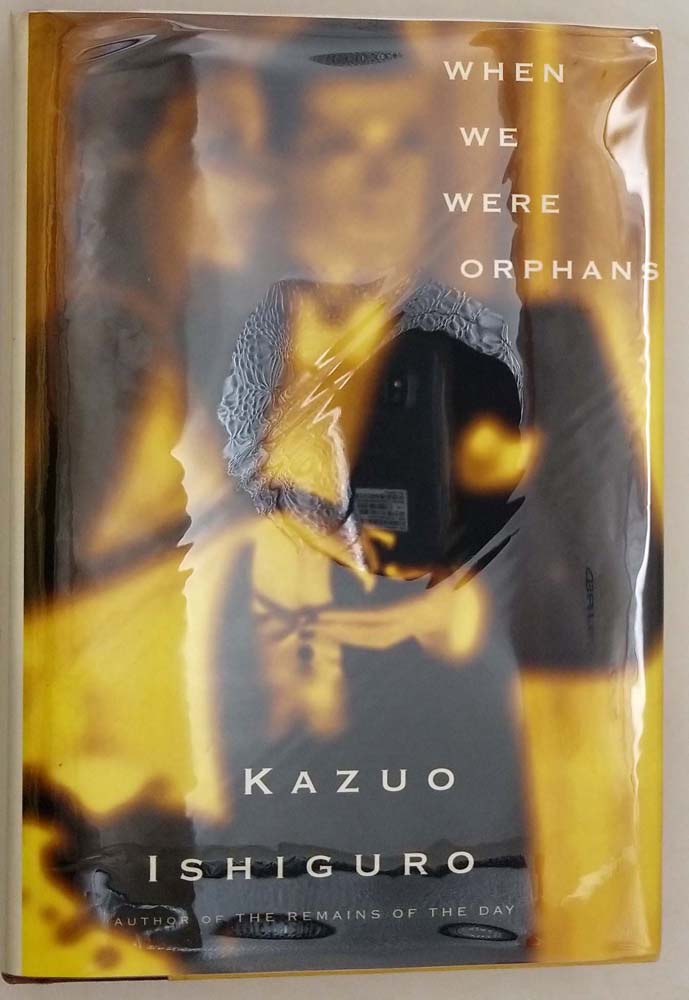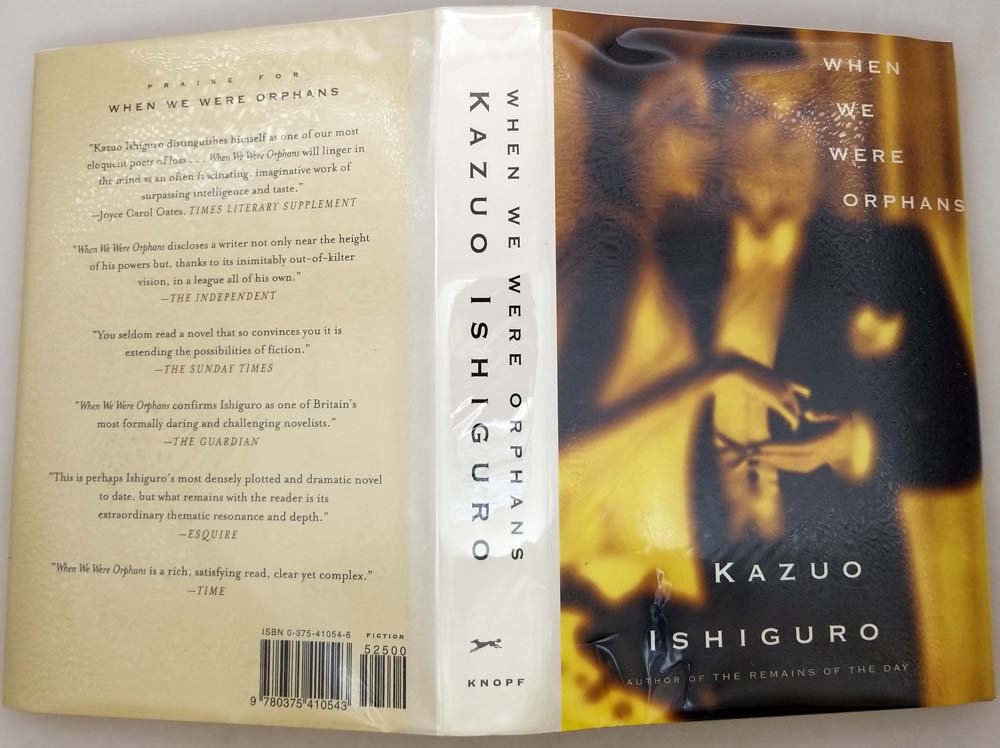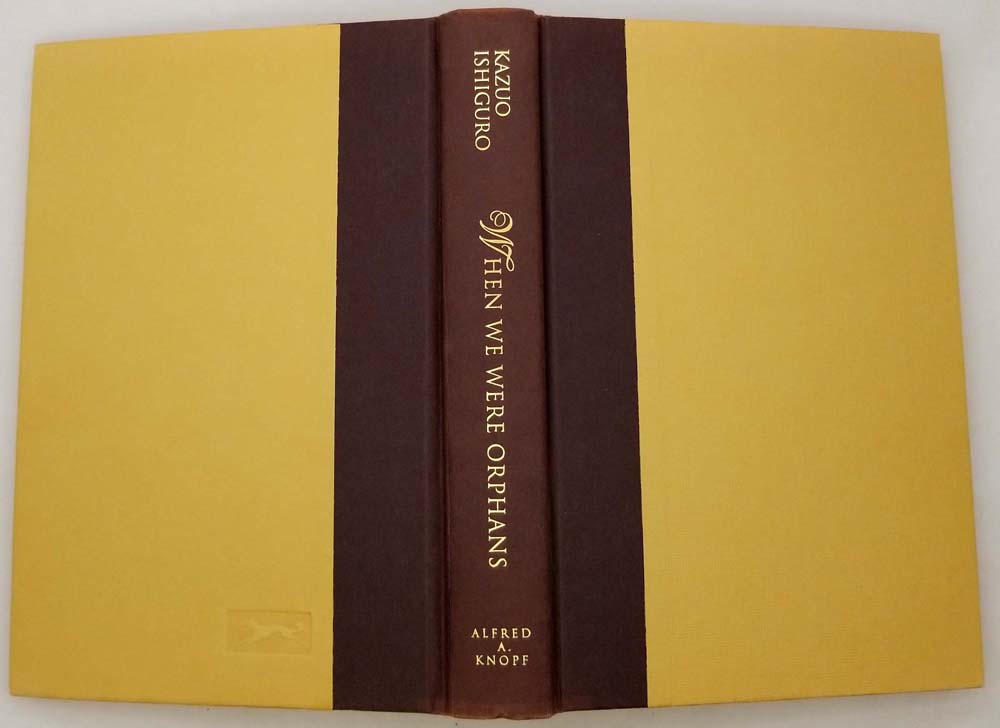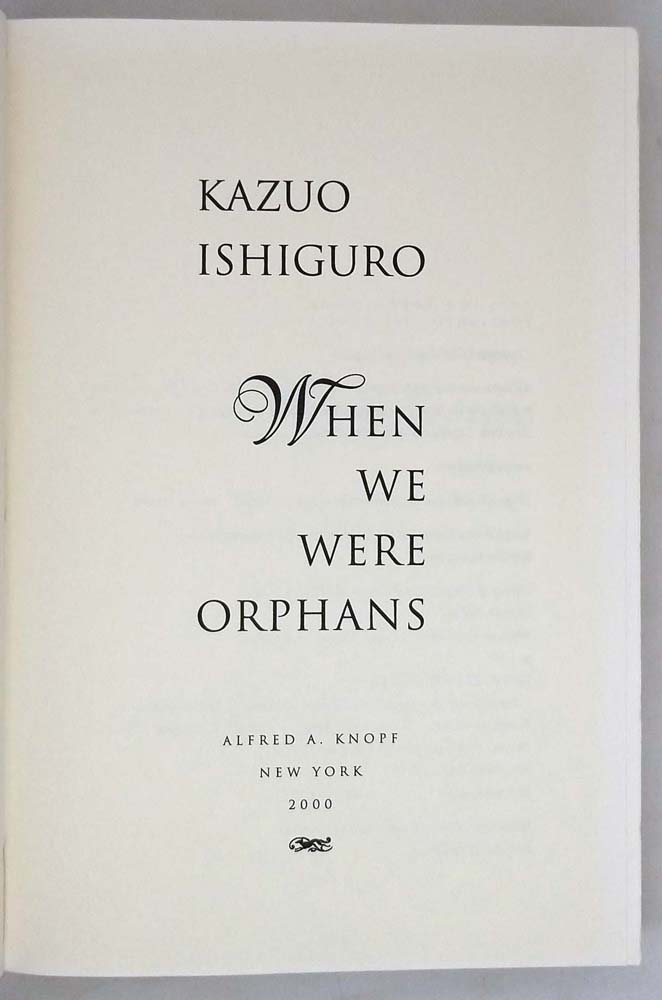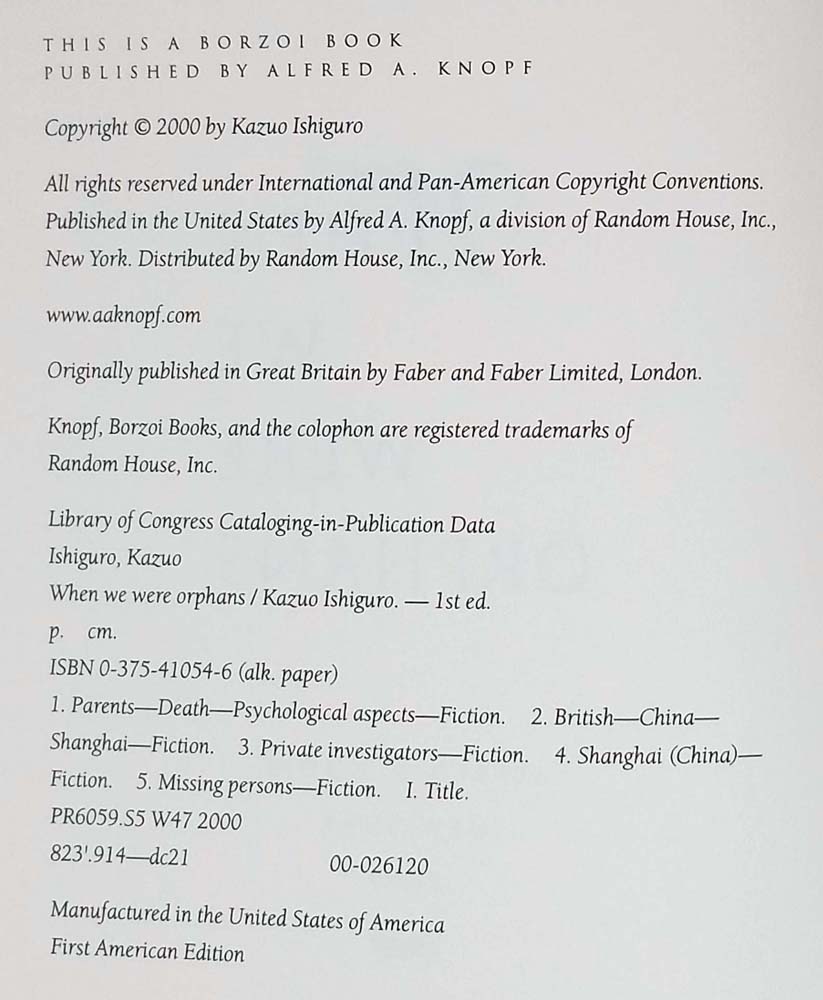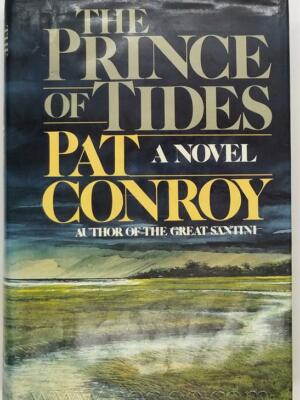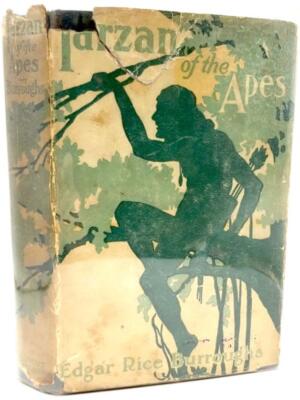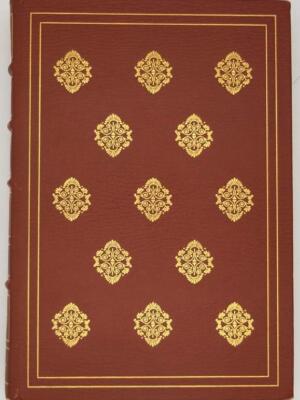When We Were Orphans (2000) by Kazuo Ishiguro is a haunting, labyrinthine novel that blends detective fiction with psychological exploration, following Christopher Banks, a celebrated English detective in 1930s London. Born in Shanghai to British expatriates, Banks is haunted by the unsolved disappearance of his parents during his childhood—a trauma that drives him to return to a war-torn Shanghai on the brink of the Sino-Japanese War, convinced he can finally solve the case.
Ishiguro’s signature restrained prose masks a deeply unreliable narrator, as Banks’s obsessive quest blurs the line between memory and delusion, exposing the colonial arrogance and personal denial that shape his worldview. The novel’s dreamlike climax in Shanghai’s International Settlement—where reality fractures amid artillery fire—questions whether truth, or even justice, can ever be reclaimed from the past.
A Man Booker Prize nominee, this is Ishiguro at his most elliptical and poignant, for readers who cherish The Remains of the Day’s subtlety but crave darker, more surreal terrain.
